
THE VOICE OF INTERNATIONAL LITHUANIA
|
VilNews has its own Google archive! Type a word in the above search box to find any article.
You can also follow us on Facebook. We have two different pages. Click to open and join.
|
Author Archive
- Posted by - (8) Comment
THE ECONOMIST:
If you had to be reborn
anywhere, you would
want to be a Viking

The Nordic countries are inventing the new capitalism,
says the Economist editorial. The front of the magazine
shows a seemingly overweight, bearded Viking,
aptly titled "The Next Supermodel".
Politicians from other parts of the world could learn much of Scandinavia, the Economist writes in this weekend edition.
The Nordic countries are inventing the new capitalism, says the Economist editorial. The front of the magazine shows a seemingly overweight, bearded Viking, aptly titled "The Next Supermodel".
The four Nordic countries Sweden, Denmark, Finland and Norway do well on one international poll after another. They are often found on top of the tables in various rankings of competitiveness of purchasing power, and even happiness.
Norway, for example, has for several years been at the top in a UN ranking of the best countries to live in. The rating is calculated as part of the human development index (Human Development Index), which is an attempt to create a measure of how we are doing, that of the good life.
It encompasses not only economic indicators but also looks at health, education and income.
Politicians from other countries should learn from the Nordic model, says the Economist. It pertains to the heavily indebted countries such as in southern Europe.
The Nordic countries have managed to find solutions to reform their public sectors, so that the state is far more efficient and better able to adapt to new needs, says the Economist.
The Economist devotes a large part of its special report of 14 pages to the development in Sweden, which is reaping considerable praise. The Swedish public sector accounted for 67 percent of the country's gross domestic product (the sum of goods and services) in 1993, while the proportion has now fallen to 49 percent.
Sweden’s Finance Minister Anders Borg has also managed to present a state budget actually goes into balance.
Focus on the largest Nordic country is undoubtedly a feather in the cap of the conservative Prime Minister Fredrik Reinfeldt, who has gradually gained considerable authority also within the EU during the discussions on economic and political reforms.
Norway's unique position as a major energy exporter contributes to the country’s position slightly to the side of the three other Nordic countries. But also Norway has started to reform the public sector, says the Economist.
- Bookmark :
- Digg
- del.icio.us
- Stumbleupon
- Redit it
- Posted by - (0) Comment
Lithuania’s best future
lies in a Nordic union
“Russia can turn the lights out on Lithuania and the other two Baltic states any time it pleases. And they can't turn them back on without Russia’s permission. Not only does this small, central European nation, as well as its neighbors Latvia and Estonia, not have access to the Russian owned-switch, but, to a large extent, it also depends on energy supplies from Russia to power its electricity generating plants; power that is needed for energy and economic independence. Lithuania as well as the other Baltic countries, being poor in energy resources, are facing a tough future and are seeking solutions.”
This was what Dr. Stan Backaitis wrote here in VilNews in 2011. We have also published articles stating that Lithuania’s dependence on Russia, to a certain degree also EU, should be reduced. We have stated that the neighbours to the north in many cases would be much more attractive partners.
- Bookmark :
- Digg
- del.icio.us
- Stumbleupon
- Redit it
- Posted by - (2) Comment
Lithuania’s best future
lies in a Nordic union

“Russia can turn the lights out on Lithuania and the other two Baltic states any time it pleases. And they can't turn them back on without Russia’s permission. Not only does this small, central European nation, as well as its neighbors Latvia and Estonia, not have access to the Russian owned-switch, but, to a large extent, it also depends on energy supplies from Russia to power its electricity generating plants; power that is needed for energy and economic independence. Lithuania as well as the other Baltic countries, being poor in energy resources, are facing a tough future and are seeking solutions.”
This was what Dr. Stan Backaitis wrote here in VilNews in 2011. We have also published articles stating that Lithuania’s dependence on Russia, to a certain degree also EU, should be reduced. We have stated that the neighbours to the north in many cases would be much more attractive partners.
Lithuania has powerful Nordic neighbours, all with AAA credit rating.. These countries, however, are successful in many different ways, not least with regard to social welfare, health care, education, rule of law, transparency, press freedom and a very good balance between government, business, education, science, and more.
What the three Baltic States now face is that being members of the EU is not enough. The economic crisis, and partly also questions on defence and security, have led to new forms of cooperation, and our small nations far north in Europe are not always invited to become active participants.
It is therefore my opinion that a tight collaboration with the other Nordic countries is the way to go. Together we are large enough to be heard and our common identity and cultural background is a good basis for cooperation.
In the 13th century, an alliance of Northern European towns called the Hanseatic League created what historian Fernand Braudel called a “common civilization created by trading.” Today’s expanded list of Hansa states share Germanic and Scandinavian cultural roots. Germany and the Scandinavian countries have found their niches by selling high-value goods to developed nations, as well as to burgeoning markets in Russia, China, and India.
Widely admired for their generous welfare systems, Denmark, Finland, Norway, Sweden and Germany have liberalized their economies in recent years. They account for six of the top eight countries on the Legatum Prosperity Index and boast some of the world’s highest savings rates (25 percent or more), as well as impressive levels of employment, education, and technological innovation.
“In strategies that we are developing for the next twenty years emphasize that it is important for the Baltic States to become more harmonized and catch up with Scandinavian countries. Integration with Nordic countries is an important objective,” said Andrius Kubilius, Lithuania’s former prime minister, in a meeting in Tallinn last year.
I think he is right.
Aage Myhre, Editor-in-Chief
- Bookmark :
- Digg
- del.icio.us
- Stumbleupon
- Redit it
- Posted by - (0) Comment

Florence is the world’s most
famous Renaissance city
Photo Aage Myhre
VILNIUS, MILAN AND FLORENCE
The three Renaissance
Capitals of the World!
Did you know that throughout the Renaissance period, when Italy was a trading centre and a melting pot for the world’s greatest civilisations, Vilnius also became a Renaissance centre, competing with Florence and Milan?
The two great nations merged when Grand Duke Sigismund the Old (1467-1548) married the Princess of the Italian city of Milan, Bona Sforza, and returned to reign in and from Vilnius as the capital of the Grand Duchy of Lithuania. The royal couple created an Italian community within the court and, under the influence of the new Grand Duchess, Italian culture became the preoccupation of the city’s elite….
- Bookmark :
- Digg
- del.icio.us
- Stumbleupon
- Redit it
- Posted by - (0) Comment

Aage Myhre We in Northern Europe should soon start to be proud of the phenomenally prominent cultural role of Vilnius through the Middle Ages, also on behalf of other North European countries ...

Julia Stork Interesting information overall, Aage! And particularly interesting is the architect's perspective on Vilnius -- I can better understand the "draw" I felt in baroque Rome.

Nellie Vin O yes we very proud its beautiful cities Vilnius, Kaunas etc. but now I want to be ironical - but if migration goes like going until now, it may Vilnius will be united with Warsaw and its my good prediction I no want to say worst possibilities.

Linas Johansonas Lithuania had heavy migration & loss of population after the first World War & rebounded. I feel it will rebound again.

Aage Myhre The solution is very obvious ... You Lithuanians must simply begin to love each other, care for each other and for what your nation represents ...

Boris Bakunas Great article when it comes to architecture, Aage. Too bad about that it suggests Gediminas, a devout pagan, wanted to Christianize Lithuania.
* Grand Duke Gediminas in 1323 – the same year he founded the city – wrote to Pope John XXII asking for support in Christianizing the Grand Duchy of Lithuania, by then one of Europe’s leading nations."
In fact, historians agree that Gediminas was just toying with the Pope. He was a devout pagan who used both diplomacy and war to preserve the culture, traditions, and religion of Medieval Lithuania. He referred to himself as King of Lithuania and Ruthenia, a title that the Pope begrudgingly accepted in a communication to him.
It is extremely important, as Jon Platakis has written, that Lithuanians reclaim their history and their dignity by refusing to allow hostile, foreign historians to write it for us.
All oppressors try to make those they oppress feel inferior. All try to rob them of their national identity. And sadly, too many Lithuanians have unconsciously succumbed to this insidious campaign of misinformation.
Let's start calling our kings and emperors by their rightful titles -- just like Norwegians do!

Jon Platakis Having pride in Lithuania's past gives tremendous impetus to having pride in Lithuania's future. This is why it is extremely important for us to take back our history that, for over 200 years, has been usurped by oppressors and other foreigners. As in the case of Gediminas, S.C. Rowell and other reputable historians have pointed out that Gediminas never intended to accept Christianity nor Christianize Lithuania. It is heartening to note that leading Lithuanian historians are now in agreement with long held beliefs of the National Lithuanian American Hall of Fame that there is no reason why Lithuania's "Grand Dukes" cannot be addressed as Kings.
- Bookmark :
- Digg
- del.icio.us
- Stumbleupon
- Redit it
- Posted by - (0) Comment
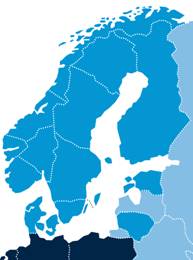
Nord Pool Spot runs the leading power market in Europe, offering both day-ahead and intraday markets to its customers.
Read more…
Baltic dispute over Russian power may delay joint market
The final integration of the European Union’s three Baltic states to the Nordic power exchange may be delayed past June as Estonia and Latvia disagree over whether Russia should be given import preference.
Estonia opposes Latvia’s plan to reserve part of the power transmission capacity for trade with Russia, Taavi Veskimagi, head of the grid operator Elering AS, said by e-mail yesterday. That would worsen summer overloads on the Estonian-Latvian border and lead to more Russian imports of power by Latvia and Lithuania, he said. Lithuanian grid operator Litgrid AB (LGD1L) agrees, its chief executive said today in Vilnius.
- Bookmark :
- Digg
- del.icio.us
- Stumbleupon
- Redit it
- Posted by - (0) Comment

Qatar Airways recruits new cabin crew members from Baltic states
Qatar Airways has turned to Baltic Aviation Academy for the recruitment of new cabin crew members from the Baltic States.
The initial assessment, gathering participants from Estonia, Latvia, Lithuania and Poland, during which 100 finalists will be selected, is to be conducted on February 9-10 2013, in Vilnius, Lithuania. An additional selection for Belarus residents (due to time needed to acquire the visas) will be conducted on the February 24.
One hundred selected candidates will be invited to the second round, conducted by the airline on February 24-25 2013 in Vilnius. The airline will offer three year open-ended contract for the cabin crew positions based in Doha.
This is the second campaign of Qatar Airways admission in the Baltic States and Poland, conducted by Baltic Aviation Academy. On October 2012, the aviation personnel training centre scanned more than 500 applicants and led 83 of them to the airlines‘ interview, more than 10 of which were proposed with job opportunities.
- Bookmark :
- Digg
- del.icio.us
- Stumbleupon
- Redit it
- Posted by - (0) Comment

Lithuanians
in the World
VilNews will from time to time present Lithuanians who have left the home country and made some kind of career abroad. We are this time not so much looking for celebrity articles, more for some unusual life stories describing Lithuanians who have settled somewhere in the world. Send us your story!From Vilnius University
to modeling in Milan
Giedrė Jotautaitė, Milan, Italy
I'm from Vilnius, born and raised here. I finished school in Vilnius and afterwards I studied Business Information Management at the University of Vilnius. Two years ago, the university required us to have practice from a business, and as I have always wanted to travel more, I decided to practice outside Lithuania. I had a friend in Italy who helped me to find a company where I could do this. So I filled in all the papers and participated in an Erasmus practice competition, and won! Afterwards I came to live in Milan. I chose Italy for many reasons: Milan has always been the centre of fashion, attracting many people from all over the world. I love Italian climate, food, their basic outlook on life and ability to do less than what is needed and not be punished. Italy has everything – mountains, sea, culture and architecture, beautiful history ... They have very good taste for living, which includes everything: from clothes to where to go on vacation.
When I participated in the Erasmus programme I fell in love with an Italian guy, at first I thought it would be just a game, but after that it became a really beautiful, lasting thing.
I came back to Lithuania after Erasmus to pass exams in Vilnius University and after I finished I thought I would go back to Italy just for the summer, but time goes very fast and I'm still here…
- Bookmark :
- Digg
- del.icio.us
- Stumbleupon
- Redit it
- Posted by - (0) Comment

Lithuanians
in the World
VilNews will from time to time present Lithuanians who have left the home country and made some kind of career abroad. We are this time not so much looking for celebrity articles, more for some unusual life stories describing Lithuanians who have settled somewhere in the world. Send us your story!From Vilnius University
to modeling in Milan

Giedrė Jotautaitė, Milan, Italy
I'm from Vilnius, born and raised here. I finished school in Vilnius and afterwards I studied Business Information Management at the University of Vilnius. Two years ago, the university required us to have practice from a business, and as I have always wanted to travel more, I decided to practice outside Lithuania. I had a friend in Italy who helped me to find a company where I could do this. So I filled in all the papers and participated in an Erasmus practice competition, and won! Afterwards I came to live in Milan. I chose Italy for many reasons: Milan has always been the centre of fashion, attracting many people from all over the world. I love Italian climate, food, their basic outlook on life and ability to do less than what is needed and not be punished. Italy has everything – mountains, sea, culture and architecture, beautiful history ... They have very good taste for living, which includes everything: from clothes to where to go on vacation.
When I participated in the Erasmus programme I fell in love with an Italian guy, at first I thought it would be just a game, but after that it became a really beautiful, lasting thing.
|
I came back to Lithuania after Erasmus to pass exams in Vilnius University and after I finished I thought I would go back to Italy just for the summer, but time goes very fast and I'm still here. I began working as a hostess at the Rho Fiera Milano, where I helped in the Expo for different brands and companies to sell their products and attract new businesses. The new Milan Fair Rho Pero is one of the largest fairground world-wide with 8 large pavilions for indoor exhibitions and 60,000 m² for outdoor exhibitions. Now I have a contract with a Slovenian company called Carbonin which produces carbon parts for motorcycles, so I go to all the expo and motorcycles races around Italy and Switzerland with them. I am sort of the company “face”, somewhat difficult to explain. I also do some modeling work thought these years, working for Corvino diamonds, and was the cover girl for car magazine (see picture below). Social life here in Italy is very important. Normal people go for aperitifs with friends to share the news of the day. Italians do not say much, but at home they are more open people. In my spare time I like to go out dancing in the clubs. This is my passion, without it cannot live :) In Vilnius I finished dance school, and now I miss dancing a lot. |
|
I know that Italy is the place where I live, the country that I love and enjoy very much, but Vilnius will always be my hometown and Lithuania will always be my country and I will definitely come back. I think this is the case for most people who left their homeland; that parts of their hearts always will want to go back to where they were born, a place they understand all the jokes people are telling, where they know the culture and where the parents live.
As I said, I do very well in Italy, but in my plans, it is always a place for Lithuania. Now with some friends who are business partners, we are working to open an e-shop, www.adoro.lt. With all my heart I’m looking to find the activity that can help me spend half of my time here in Lithuania, where all my friends and family are.
And I can say that the last government and some intelligent people have made it easy to do business here, for example; from September last year it’s possible to open a "mazoji bendrija", which offers a very interesting option. In Lithuania we have e-signature, we have wireless networks in every public place you go so we try to look ahead and that’s a wonderful thing. Lithuania has a lot of intelligent people who might go abroad then get some practice and then come back to do Lithuanian life better.
As I see it, Lithuania is doing pretty good if I compare with Italy where you now can feel the crisis more. Strikes and incredible taxes, every day new laws, which modifies a prior completely... And now Berlusconi seems to be making a comeback… In Italy there are a million people and businesses not paying taxes and the government is trying to stop this in the most amazing ways.
Lithuania is tackling this in a much better way. My Italian boyfriend says that if it continues like this we will come to live in Lithuania :) So I cannot wait.
I come to Lithuania to see my parents and friends every month, and every morning I read the news from Lithuania. I especially like www.ekonomika.lt and also www.VilNews.com.
Now it’s also possible to join the VilNews Facebook Forum where people share information and news. I want to say thank you to Aage Myhre for his patience and time in searching such interesting information and give the rest of us a chance to know this too.
Best wishes and kisses,
Giedre :)
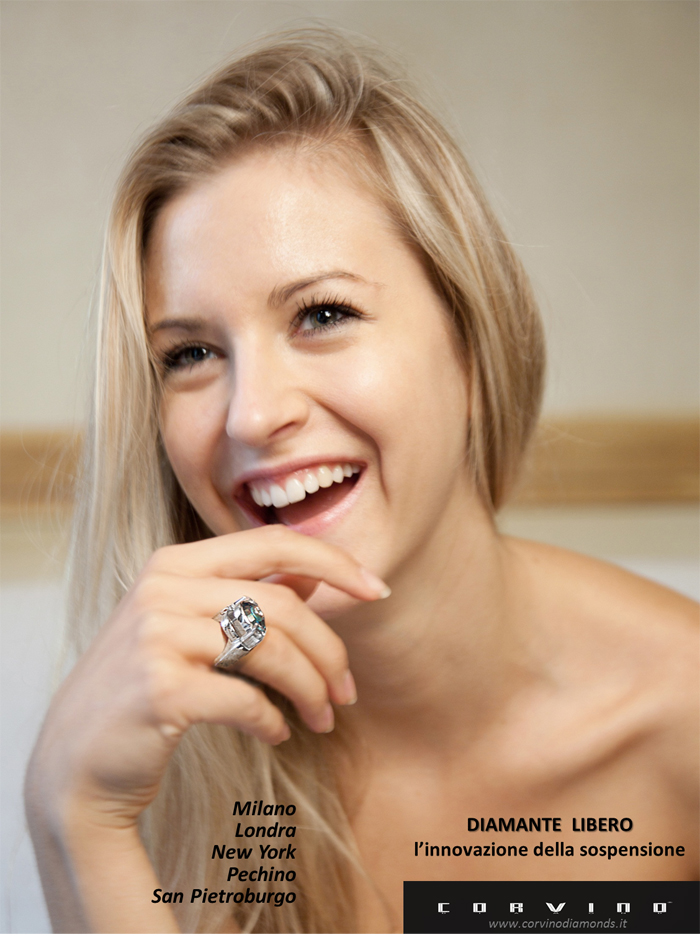
- Bookmark :
- Digg
- del.icio.us
- Stumbleupon
- Redit it
The three Renaissance Capitals of the World!
- Posted by - (0) Comment
Did you know that throughout the Renaissance period, when Italy was a trading centre and a melting pot for the world’s greatest civilisations, Vilnius also became a Renaissance centre, competing with Florence and Milan?
The two great nations merged when Grand Duke Sigismund the Old (1467-1548) married the Princess of the Italian city of Milan, Bona Sforza, and returned to reign in and from Vilnius as the capital of the Grand Duchy of Lithuania. The royal couple created an Italian community within the court and, under the influence of the new Grand Duchess, Italian culture became the preoccupation of the city’s elite….
- Bookmark :
- Digg
- del.icio.us
- Stumbleupon
- Redit it
- Posted by - (0) Comment
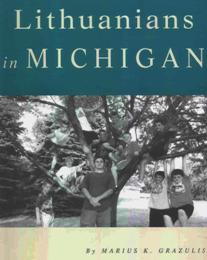
. The book is soft cover and 103 pages long. This was part of a series, such as Hungarians in Michigan, Latvians in Michigan, Mexicans in Michigan, Poles in Michigan, etc. This particular book gives the reader an introduction to the Lithuanian history and the reasons and circumstances they settled in Michigan. It also takes pride in listing the contributions this ethnic group has made in Michigan, and highlights some of their important organizations here. My town of Albion is mentioned and my grandfather's (Nikodemas Kulikauskas (Mike Kulikowski) picture with the fish is in this. Also in here is a "Lithuania Lunch" token from Detroit.
Frank Passic
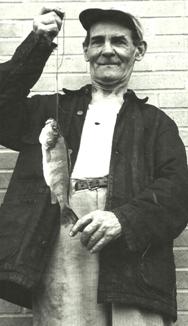
- Bookmark :
- Digg
- del.icio.us
- Stumbleupon
- Redit it
- Posted by - (0) Comment
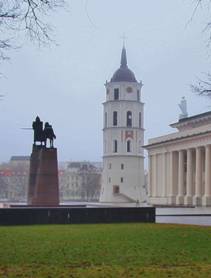
Vilnius through
Indian eyes…
The past is never too far behind in Vilnius — it whispers from the plaques outside the Museum of Genocide Victims located in the old KGB headquarters — one plaque for every person that was executed inside. A visit to the museum with its cells, solitary confinement rooms, torture rooms and even eavesdropping devices that were used, is a sobering experience.
Once Vilnius had a prominent Jewish community and was called the “Jerusalem of the North”. More than 90 per cent of the Jewish community was liquidated under the Nazis and today only one of the 105 synagogues survives. Walking along the winding Stikliu Street in the Jewish quarter, which was once the glass blowers’ street, is a pleasant experience. There are classy ateliers selling stained glass, jewellery and art. You can indulge your sweet tooth at the French patisserie Poniu Laime. On my last day in the city I take a funicular to the fortress on the Gediminas hill, and look down at the panorama of the city: red roofs jostling with spires and domes, providing a counterpoint to the glitzy new city across the river with steel and glass skyscrapers. The perfect metaphor for a city with its feet rooted in the past but its head firmly focused on the future.
Read more…
- Bookmark :
- Digg
- del.icio.us
- Stumbleupon
- Redit it
- Posted by - (0) Comment

Lithuanians
in the World
VilNews will from time to time present Lithuanians who have left the home country and made some kind of career abroad. We are this time not so much looking for celebrity articles, more for some unusual life stories describing Lithuanians who have settled somewhere in the world. Send us your story!- Bookmark :
- Digg
- del.icio.us
- Stumbleupon
- Redit it
- Posted by - (0) Comment
Has the spirit of
January 1991 returned?

Is there a new Lithuanian awakening in the making?
What do you, dear reader, think?
By Aage Myhre, editor-in-chief
aage.myhre@VilNews.com
The 22 years that have passed since January 1991, when the Lithuanian people in an exemplary, peaceful manner stood up against the violent Soviet re-occupation, have only rarely lived up to the expectations I and many with me had by then.
Neither Landsbergis, Brazauskas, nor later leaders delivered when the new statehood was to be developed during the 1990s.
The country's newfound freedom did not lead to the type of growth and better living conditions for the broad masses, that had been expected. Also, the warmer, friendlier and more human society we all waited for never occurred. When the people who had shown their support for the new won independence from the Soviet Union returned to their towns and villages in the spring of 1991, much of the community spirit was gone and did not appear since.
Different leaders have since those days made some half-hearted attempts to regain team feeling, cooperation and community spirit within groups of the Lithuanian people. These attempts have largely been met with shrug and distrust, and few politicians have gained genuine respect of their own people.
The EU membership in 2004 did not become the boost that had been expected. Certainly, the economy enjoyed a positive step forward, but not much positive happened for the broad masses of the people.
Therefore, the most striking result of the membership and the open borders to the West, was a mass exodus unparalleled in and for any other country of today.
The enormous crisis that began in 2008 made the situation even worse, almost unbearable for many, and one felt that it was only a matter of time before the country would collapse, emptied of inhabitants.
Then, a year or two ago, I felt that something was happening down in the grassroots of business people and others. I discovered more and more young professionals who began to define their own paths, no longer waiting for the older generations of leaders to show the way.
When I this year marked 13 January in the Lithuanian Parliament Building, 22 years after I in 1991 stood there with Professor Landsbergis looking out the window at the bonfires, barricades and the huge crowd of unarmed people who had gathered to protect their president and the country's future as a free nation, I saw something completely new to me…
- Bookmark :
- Digg
- del.icio.us
- Stumbleupon
- Redit it
- Posted by - (0) Comment
Has the spirit of
January 1991 returned?

Is there a new Lithuanian awakening in the making?
What do you, dear reader, think?
By Aage Myhre, editor-in-chief
aage.myhre@VilNews.com
The 22 years that have passed since January 1991, when the Lithuanian people in an exemplary, peaceful manner stood up against the violent Soviet re-occupation, have only rarely lived up to the expectations I and many with me had by then.
Neither Landsbergis, Brazauskas, nor later leaders delivered when the new statehood was to be developed during the 1990s.
The country's newfound freedom did not lead to the type of growth and better living conditions for the broad masses, that had been expected. Also, the warmer, friendlier and more human society we all waited for never occurred. When the people who had shown their support for the new won independence from the Soviet Union returned to their towns and villages in the spring of 1991, much of the community spirit was gone and did not appear since.
Different leaders have since those days made some half-hearted attempts to regain team feeling, cooperation and community spirit within groups of the Lithuanian people. These attempts have largely been met with shrug and distrust, and few politicians have gained genuine respect of their own people.
The EU membership in 2004 did not become the boost that had been expected. Certainly, the economy enjoyed a positive step forward, but not much positive happened for the broad masses of the people.
Therefore, the most striking result of the membership and the open borders to the West, was a mass exodus unparalleled in and for any other country of today.
The enormous crisis that began in 2008 made the situation even worse, almost unbearable for many, and one felt that it was only a matter of time before the country would collapse, emptied of inhabitants.
Then, a year or two ago, I felt that something was happening down in the grassroots of business people and others. I discovered more and more young professionals who began to define their own paths, no longer waiting for the older generations of leaders to show the way.
When I this year marked 13 January in the Lithuanian Parliament Building, 22 years after I in 1991 stood there with Professor Landsbergis looking out the window at the bonfires, barricades and the huge crowd of unarmed people who had gathered to protect their president and the country's future as a free nation, I saw something completely new to me.
I was, now in 2013, there with a group of young Lithuanians, most of them so young that they do not have their own memories of what happened there 22 years ago. Yet the memories of the sad events in January 1991 were obviously alive and present for them. They wanted to underline that freedom and independence is not something one can take for granted. I was there with some of Lithuania's future politicians – young, well-educated, smart leaders that this country a few years ago could only dream about.
I walked around with them in the Parliament this 13th January. I saw their interests, and their pride in belonging to a great nation like this.
I also saw large photographs on the walls, with Lithuania's parliamentary history of the interwar time and from the years after the Declaration of Independence 11 March 1990. The sadness I felt when I walked around in these corridors 22 years was gone, now I felt only joy, and optimism regarding the country's future and its political leaders for the years to soon come.
I had, before this visit, seen young Lithuanian business people in full swing building up more professional structures and attitudes. That I now saw the same happen among young politicians was very gratifying.
Both of these groups feel to some extent that our brand new government is a step backwards, back to the "nomenclature times", but their young, Western-type way of thinking is certainly very encouraging and I think we are facing a crossroads which bodes well for Lithuania!
It is precisely such attitudes I now see more and more of among young Lithuanians. And this time, it appears that they are ready to take matters into their own hands, no longer waiting for the older politicians and leaders to show the way. It almost feels as if the spirit of January 1991 is back, now in a structured, pragmatic and professional manner.
What do you, dear reader, think? Is there a new awakening in the making? Has the spirit of 1991 returned?
- Bookmark :
- Digg
- del.icio.us
- Stumbleupon
- Redit it
UK educated Lithuanians are now returning home!
- Posted by - (0) Comment
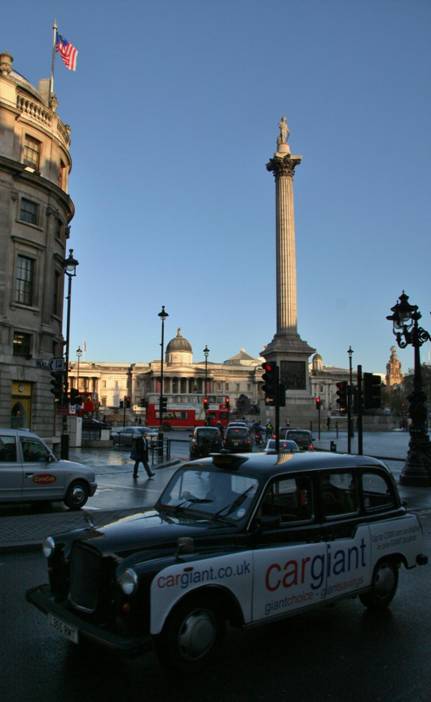
Lithuanians are now returning home from the UK. In cabs?
Photo: Aage Myhre.
A recent guadian.co.uk article on Lithuanians in the UK discusses how well Lithuanians integrated in the British society and made Britain their home. At the same time, the Guardian outlines a new trend of UK-educated young professionals; many are now moving back to Lithuania!
It also mentions Lithuanian government’s initiatives to encourage Lithuanians living abroad to look for opportunities back home, such as the new Junior Professionals Programme „Kurk Lietuvai“ (Eng. “Create for Lithuania”) that was initiated by Invest Lithuania.
Programme “Kurk Lietuvai” attracted a lot of attention among young Lithuanian professionals abroad and was noted by the guardian.co.uk as a fine effort to encourage the young professionals to return home. The pioneering project was successfully launched in September last year, offering one-year internships in the heart of government ministries and public institutions. “The project is aimed exclusively at young Lithuanians with degrees from the best foreign universities and will undoubtedly woo some of the brightest back”, - writes the guardian.co.uk.
Lithuania promotes its highly qualified labour pool as one of the key factors attracting foreign investment to the country. Multinational companies consistently identify the high quality of staff as the most positive aspect of their experience in Lithuania.
Read the full article here
- Bookmark :
- Digg
- del.icio.us
- Stumbleupon
- Redit it
VilNews e-magazine is published in Vilnius, Lithuania. Editor-in-Chief: Mr. Aage Myhre. Inquires to the editors: editor@VilNews.com.
Code of Ethics: See Section 2 – about VilNews. VilNews is not responsible for content on external links/web pages.
HOW TO ADVERTISE IN VILNEWS.
All content is copyrighted © 2011. UAB ‘VilNews’.

 Click on the buttons to open and read each of VilNews' 18 sub-sections
Click on the buttons to open and read each of VilNews' 18 sub-sections 






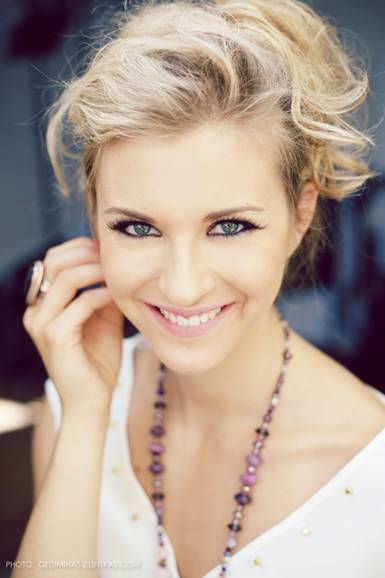

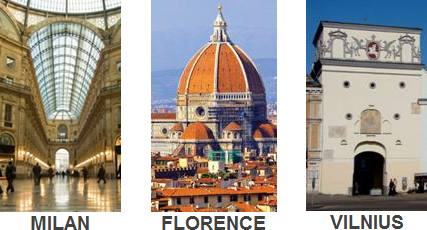



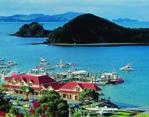

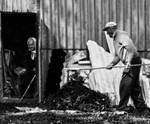













.jpg)



